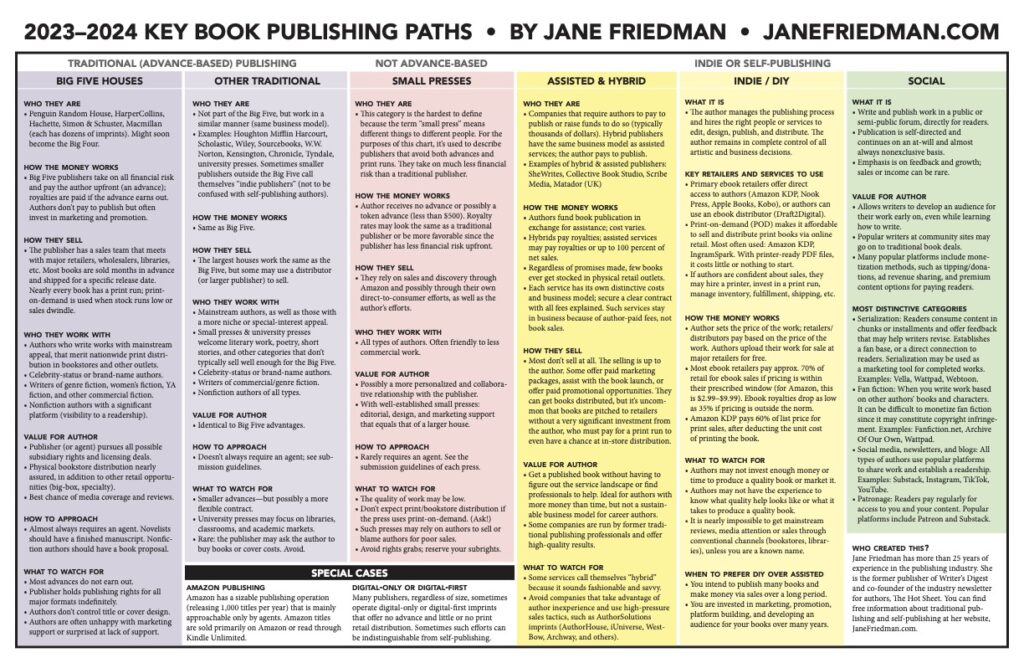And is it for you?
As you probably already know, the publishing world is going through a huge transition. The big New York houses are combining (or trying to – most recently, a judge denied the proposed purchase by Penguin Random House of Simon and Schuster, that would have merged the two). Self-publishing has become increasingly mainstream and lucrative. And a “new” kind of publishing has emerged called “hybrid”.
What does all this mean for authors?
Fortunately, we have an expert to rely on for answers to this and many other questions. Jane Friedman is a generous and knowledgeable teacher, blogger, and writer who shares her wisdom through her excellent newsletter and blog, as well as her essential book, THE BUSINESS OF BEING A WRITER. (If you want a career as a writer, you really do need this book.)

Jane has created a cheat sheet that is downloadable (I’ve uploaded a copy here, but the original is easier to read, so download from that link) and gives a summary of every publishing option for fiction and non-fiction. In addition, you can find an in-depth interview about this cheat sheet and more between Jennie Nash and Jane here.
Focus on Hybrid
Because it’s the newest option for authors to pursue, and because it offers some assistance to what would ordinarily be on the indie author’s shoulders, hybrid publishing has taken a spotlight. As the name suggests, hybrid is neither traditional (advance-based) publishing, nor is it indie self-publishing.
Hybrid publishers can and do reject manuscripts (but only if they truly cannot help the manuscript become publishable). Authors pay for the services of hybrid publishers, which can include editing, cover, interior design, marketing, and distribution. If the author has the financial resources, this can be an attractive option, as it takes away the burden of our least-desirable tasks (marketing and distribution).
If You Are Thinking of Hybrid
It’s really important to do your research and vet the publisher. Some are forging a strong positive reputation in the industry, and as Jane says, have been founded by former industry pros. Others are more like the old “vanity” presses – they’ll take your money and do a terrible job. As with everything, caveat emptor.
If you want to whip that manuscript into shape, regardless of your publishing choice, I have a few openings in my calendar, and I’m about to restructure my options to include some affordable group coaching. I can also offer some guidance on your best path to publication.
I’d love to become your guide to writing and publishing your best children’s book. Create with confidence!
